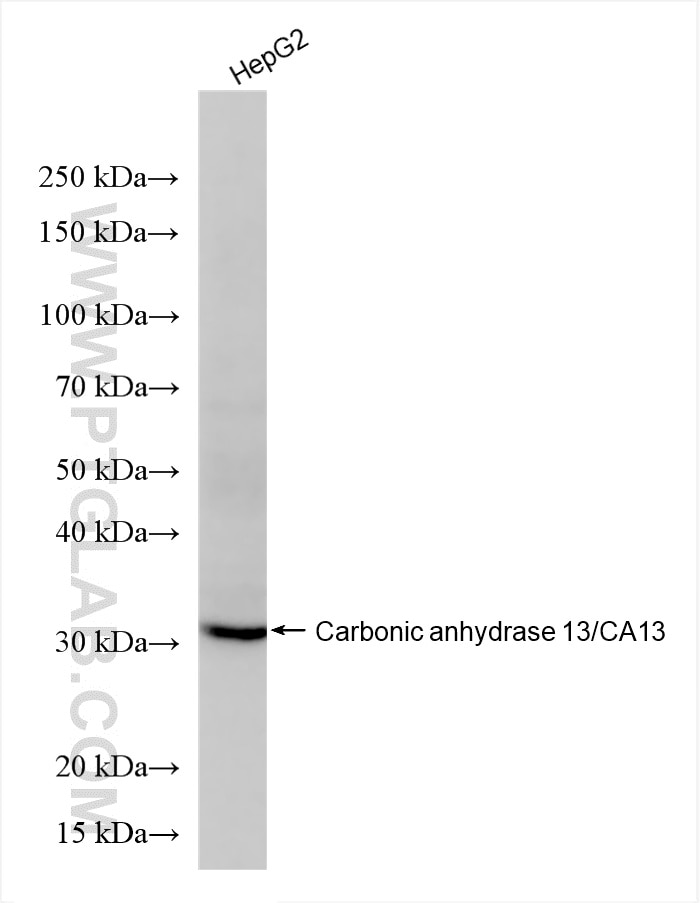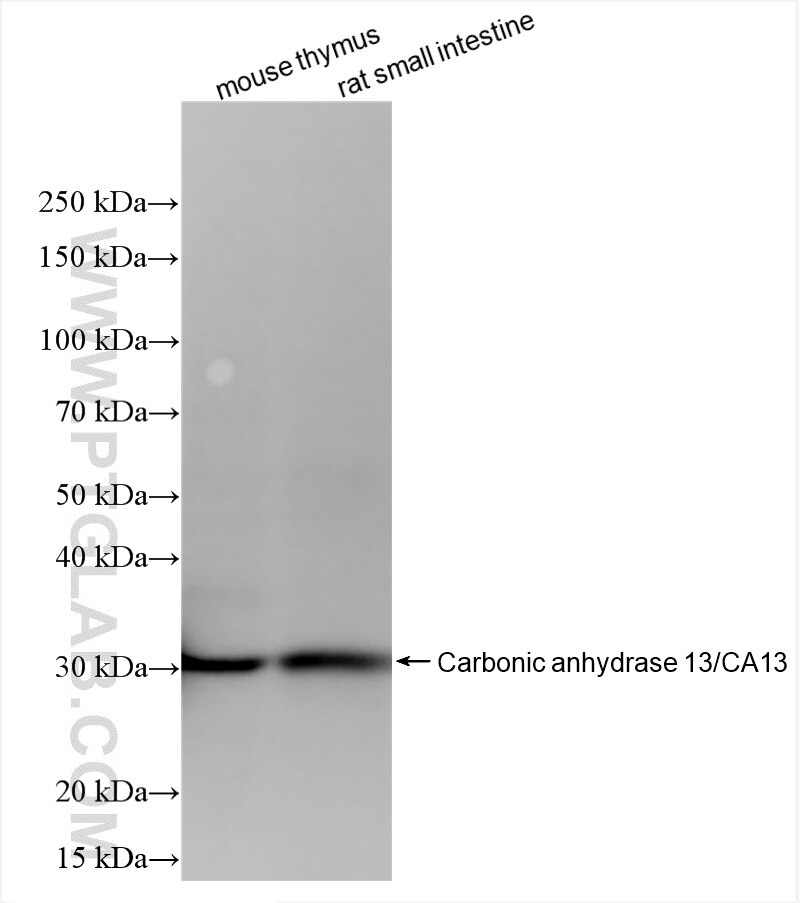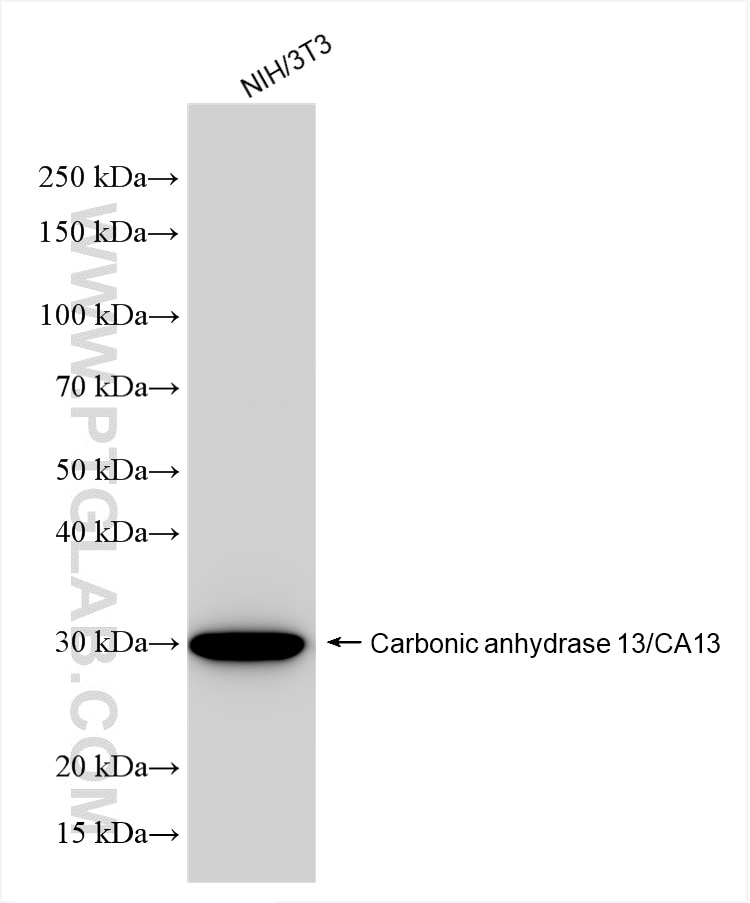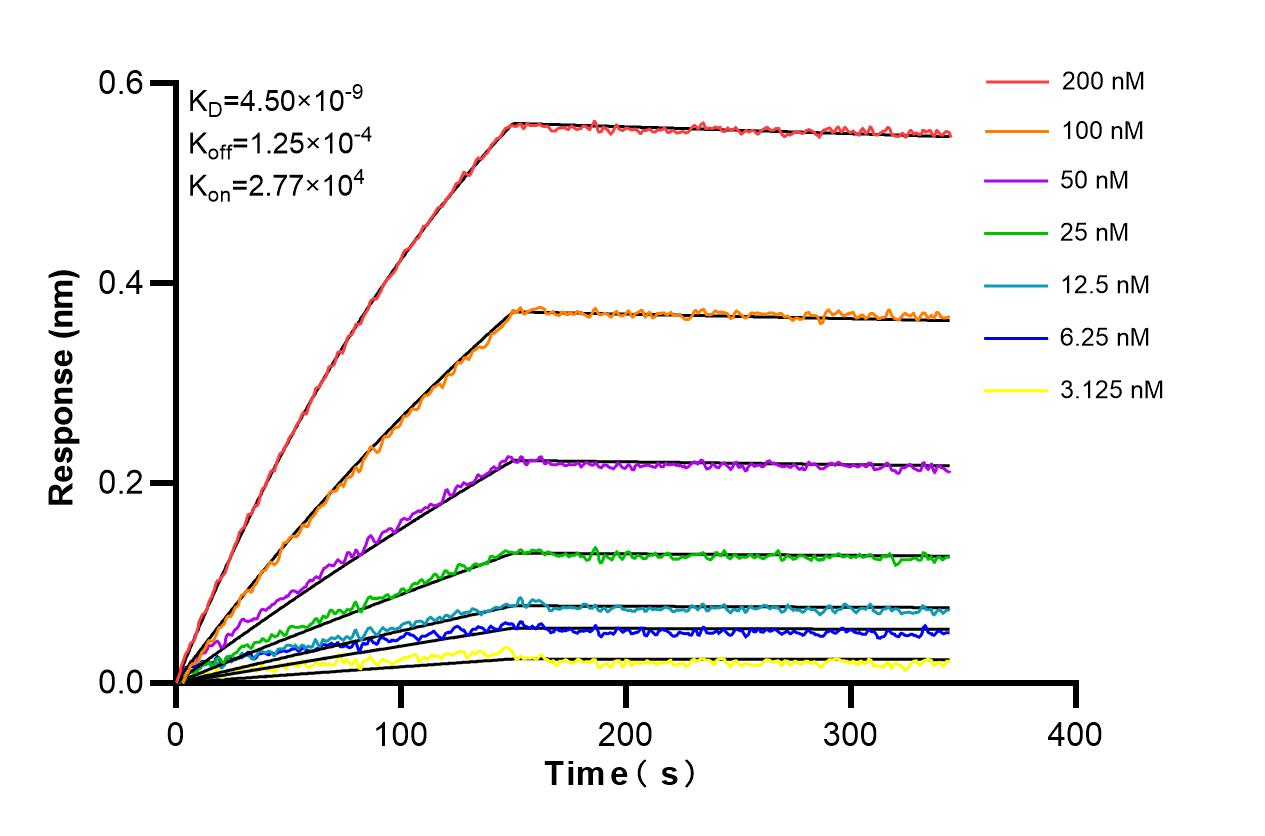Validation Data Gallery
Tested Applications
Recommended dilution
| Application | Dilution |
|---|---|
| It is recommended that this reagent should be titrated in each testing system to obtain optimal results. | |
Product Information
86178-1-PBS targets CA13 in WB, Indirect ELISA applications and shows reactivity with human, mouse, rat samples.
| Tested Reactivity | human, mouse, rat |
| Host / Isotype | Rabbit / IgG |
| Class | Recombinant |
| Type | Antibody |
| Immunogen |
CatNo: Ag10086 Product name: Recombinant human CA13 protein Source: e coli.-derived, PGEX-4T Tag: GST Domain: 1-262 aa of BC052602 Sequence: MSRLSWGYREHNGPIHWKEFFPIADGDQQSPIEIKTKEVKYDSSLRPLSIKYDPSSAKIISNSGHSFNVDFDDTENKSVLRGGPLTGSYRLRQVHLHWGSADDHGSEHIVDGVSYAAELHVVHWNSDKYPSFVEAAHEPDGLAVLGVFLQIGEPNSQLQKITDTLDSIKEKGKQTRFTNFDLLSLLPPSWDYWTYPGSLTVPPLLESVTWIVLKQPINISSQQLAKFRSLLCTAEGEAAAFLVSNHRPPQPLKGRKVRASFH 相同性解析による交差性が予測される生物種 |
| Full Name | carbonic anhydrase XIII |
| Calculated molecular weight | 262 aa, 29 kDa |
| Observed molecular weight | 30 kDa |
| GenBank accession number | BC052602 |
| Gene Symbol | CA13 |
| Gene ID (NCBI) | 377677 |
| Conjugate | Unconjugated |
| Form | |
| Form | Liquid |
| Purification Method | Protein A purification |
| UNIPROT ID | Q8N1Q1 |
| Storage Buffer | PBS only{{ptg:BufferTemp}}7.3 |
| Storage Conditions | Store at -80°C. |
Background Information
Carbonic anhydrases (CAs) are zinc-containing metalloenzymes that catalyze the reversible hydration of carbon dioxide. The mammalian α-CA gene family has been reported to include at least eleven enzymatically active isoforms with different structural and catalytic properties. Four of the active CA isozymes are cytosolic (CA I, II, III, and VII), four are membrane-associated(CA IV, IX, XII, and XIV), two are mitochondrial (CA VA and VB), and one is a secretory form (CA VI). CA13 is a cytosolic protein that may play a role in embryogenesis and perturbation of its function by genetic modification could potentially lead to developmental abnormalities(PMID:14600151).




